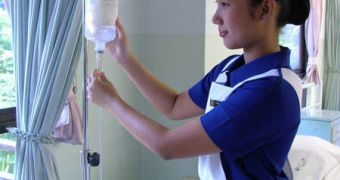At this point, authorities admit, the situation in Scottish hospitals is not flawless. A recent online survey has found that almost 33 percent of the nurses who reported their concerns about the safety of their patients said that no action was taken after their complaint was filed. In addition, the vast majority of nurses fear retaliation from their colleagues or the health care units in which they work, if they blow the whistle on the things that go on inside the hospitals. Aware of this situation, the Royal College of Nursing, which has also done the survey, says that it will set up an independent phone line, where nurses can call and anonymously report threats to their patients or other mishaps.
Experts from the RCN argue that it's regrettable they had to resort to this type of measure, but that it's absolutely necessary to ensure the safety of the patients over some doctor's interests or carelessness. Between May 24th and May 1st, the College surveyed over 570 nurses in Scotland, and found that 80 percent of them had information about the erroneous ways in which some patients were treated, but that they were afraid to speak out on account of the fact that they might lose their job, or be forced to resign.
Norman Provan, the associate director for RCN Scotland, has made an appeal to the Scottish government, to devise ways in which to ensure the fact that health boards around the region listen to their employees, and do not reprimand them for doing the right thing. “As an immediate first step, we are calling on all health boards and employers in the independent sector to make give a categorical commitment to staff that they will be protected from victimization and reprisals if they speak out. Health boards and other employers should also take action to make sure that all staff are fully aware of whistle-blowing policies and procedures,” Provan shares, quoted by the BBC News.
“For the first time in Scotland, we have the Scottish Patient Safety Programme designed to improve the safety of care across the NHS. This and the ongoing work of NHS Quality Improvement Scotland and the Scottish Patient Safety Alliance will mean Scotland has in place robust arrangements for safe and effective care. NHS Scotland and the Scottish Government have developed a range of policies to encourage employees to raise concerns without fear of penalty or victimization. Key to this is a commitment to a no-blame culture,” a Scottish Government spokeswoman adds. She also explains that, under any and all circumstances, the welfare of patients is the most important thing.

 14 DAY TRIAL //
14 DAY TRIAL //